 Petzlover
PetzloverLhasapoo is originated from United States but Molossus is originated from Greece. Lhasapoo may grow 48 cm / 18 inches shorter than Molossus. Lhasapoo may weigh 49 kg / 108 pounds lesser than Molossus. Both Lhasapoo and Molossus has almost same life span. Lhasapoo may have less litter size than Molossus. Both Lhasapoo and Molossus requires Moderate Maintenance.
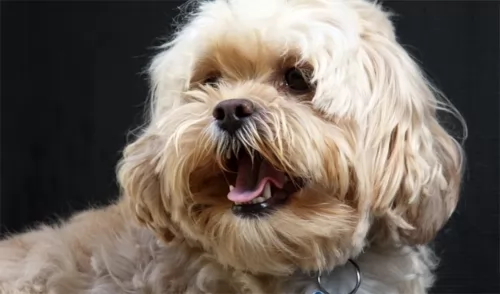 Such a cute, cuddly teddy bear of a dog is popular with everyone who just wants a wonderful canine companion.
Such a cute, cuddly teddy bear of a dog is popular with everyone who just wants a wonderful canine companion.
Both the Lhasa Apso and the Poodle are ancient dog breeds and they are the two breeds that have been used to bring about the Lhasapoo. The Poo has been bred to essentially be an indoor dog.
It would appear as though the Lhasapoo was developed in the United States of America, as in 1933, a pair was given to an American traveler who developed a kennel.
The Molossus has always been a popular dog and they have been around since ancient times. Mastiff type dogs are termed as Molossus.
Of course, when looking at the origin of the dog, there are many unsubstantiated claims about it. It has always been believed that the Molossus was a Mastiff-type dog, ferocious in battle. The Romans were dog breeders and recognized that the Molossus was a talented dog – good at guarding and herding.
Over the centuries the dog has changed but it is believed it was a Mastiff-type dog with a number of other breeds included in its origins such as the Rottweiler, Pug, Bulldog, Great Dane, Alano Espanol and Saint Bernard.
The Molossus isn’t a dog breed itself but rather a category that other dogs belong to. Today there are Molosser clubs and Molosser shows around the world.
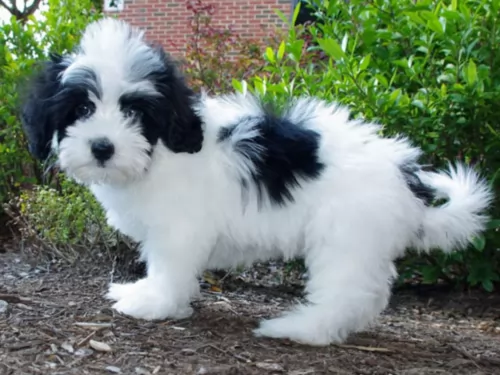 The Lhasapoo is a mix of Poodle and Lhasa Apso. He is a small dog standing between 25–28 cm in height and weighing 4 – 6kg.
The Lhasapoo is a mix of Poodle and Lhasa Apso. He is a small dog standing between 25–28 cm in height and weighing 4 – 6kg.
Known as a designer breed, his small size allows him to adapt to life in the city or to the countryside. He is such a cute little dog with his alert face, his bright brown eyes, short legs and floppy ears.
His coat is thick and dense and can be curly or fairly straight. It comes in a number of solid colors – apricot, tan, cream, brown, white and black or he can be bi-color – any of these colors mixed with white. In fact, as a crossbreed he can inherit the looks of either dogs – the Poodle or Lhasa Poo. Because he has poodle in him, these dogs are sometimes spoken about as being hypoallergenic.
Small and gentle in nature, the Lhasapoo makes a splendid pet and companion for everyone. He is such an amicable small dog, getting on well with both children and other pets in the home.
You can’t really tell what kind of a dog he’ll turn out to be in terms of his character, because he can be quite aloof if the Lhasa side of him is stronger or he could be playful and friendly if the Poodle side of him is stronger.
This Ancient dog breed from Greece has different descriptions of what it really looked like. It seems to have always been large to medium sized dog standing in the region of 50 to 76cm in height and weighing anything from 25 to 55kg.
The coat is mostly short and smooth and can be in a host of different colors. They are large boned dogs, solidly built with medium sized floppy ears, a short, thick neck, short, broad muzzle and a long tail which was later docked.
Molossers typically have heavy bones, pendant ears, and a relatively short and well-muscled neck, with a short, broad muzzle. These Molossers have always been used for a variety of jobs where strength, perseverance, speed and braveness are required. They have been used as rescue- and guard dogs, protecting livestock from predators.
The Molossus dogs all have the same kind of characteristics which have been bred into them. From their working days, they are known for their tremendous courage, taking on wild animals to protect their livestock.
They are territorial, wanting to protect their human family and home from intruders.They have also been bred to be loyal, loving family pets, and being highly affectionate, they want to be involved in the activities of the family.
This breed is gentle and loving, social and active and gets on well with other pets in the home as well as with children. They’re intelligent dogs and will need to be trained and socialized to ensure they are obedient and amicable with visitors to the home.
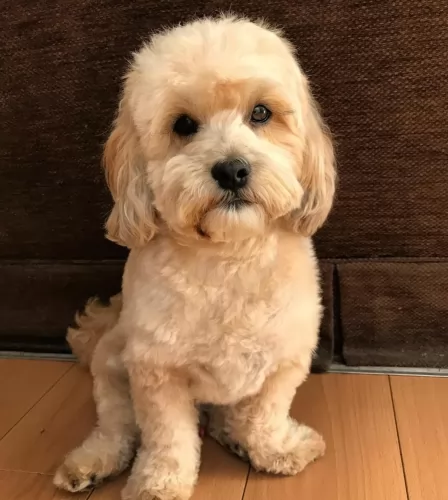 The Lhasapoo is a crossbreed, so you never know what you’re actually going to get – a little bit of Lhasa or a little bit of Poodle.
The Lhasapoo is a crossbreed, so you never know what you’re actually going to get – a little bit of Lhasa or a little bit of Poodle.
One thing is for sure though – you’re going to get the cutest little pet ever. He is a friendly, affectionate dog, but the Lhasa side of him makes him wary of strangers, making him an excellent watchdog.
They have a moderate activity levels and will adapt easily to life in the city or in the countryside, but they will need a walk every day to ensure he doesn’t become unfit and obese.
Lhasapoo puppies are adorable but every cute puppy grows into an adult. Then it’s time to show you’re a responsible dog owner by continuing to love and care for your adult Lhasapoo so that he becomes the wonderful companion he is designed to be.
The Molossus, contrary to what many people think, isn’t a vicious dog, but rather a good natured dog that makes a wonderful family pet.
These dogs are known also for being hard working dogs with characteristics of bravery. They are dogs who may look fairly tough, but they are actually gentle, calm and sensitive. It’s a bad upbringing from the owners that gives any dog bad characteristics.
Train your Molossus, have him socialized and be a responsible and loving dog owner, and these dogs promise to make you a splendid family pet.
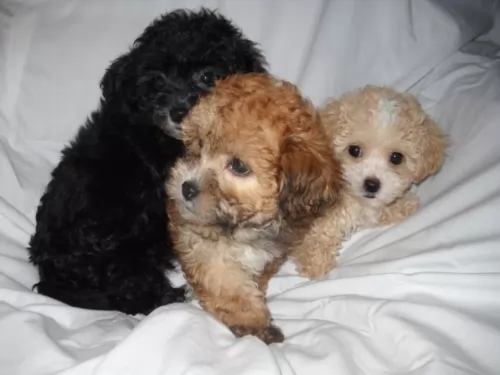 All dogs have the potential to become ill but when you give your dog the best chance to eat well and he is loved and cherished, he can live a long life.
All dogs have the potential to become ill but when you give your dog the best chance to eat well and he is loved and cherished, he can live a long life.
The Lhasapoo can live to be 15 years of age if you treat him well and ensure that he has a healthy diet. Of course as a crossbreed, his chances of developing inherited diseases is limited.
Watch out for Bloat, particularly if your pet gobbles up a large bowl of food. It is better to feed him 2 smaller meals a day. There are some time-releasing food bowls available for pets to encourage slower eating.
With Bloat, you’ll notice your pet’s stomach is swollen up. Complications set in when the stomach turns or twists as fluid and air can’t escape. Your dog will also be restless, drooling and trying to vomit. Bloat is a life-threatening illness.
This can be a complication from disease or medications even. It is important to keep your pet’s teeth healthy as chronic kidney disease can be caused by dental disease too. Bacteria from the diseased teeth and gums enters bloodstream and damages vital organs like the kidneys.
These large dogs are particularly prone to health issues such as hip dysplasia, a genetic condition. A poor diet as well as environmental factors can contribute towards the disease too as well as rapid weight gain and obesity.
This disease develops because the dog’s hip joints haven’t developed properly. The hips then partially dislocate, and the dog has pain and battles to get around. If your dog shows signs of hip dysplasia, he will need to get to the vet to do a physical exam and come up with a treatment- and management program.
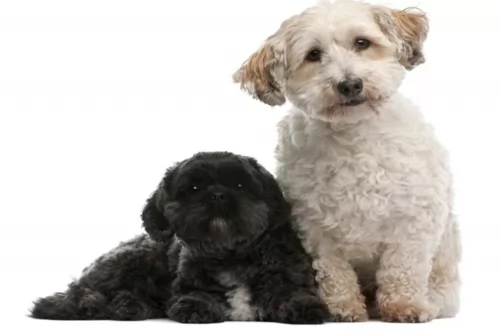 The Lhasapoo is a dog breed that likes to spend time indoors. Because of his looks, his human family members will no doubt be vying for his attention and playing indoor games with him. It will do him good to get out for a walk every day as this gives him the chance to sniff around and smell different things and experience life outside his home.
The Lhasapoo is a dog breed that likes to spend time indoors. Because of his looks, his human family members will no doubt be vying for his attention and playing indoor games with him. It will do him good to get out for a walk every day as this gives him the chance to sniff around and smell different things and experience life outside his home.
The Lhasapoo isn’t a big eater and he will require top quality food for small breeds. He isn’t a big meat eater so a tiny bit of cooked chicken, rice and vegetables chopped up nicely and added to his kibble from time to time will keep him healthy and happy.
Being the crossbreed that he is, you can’t be too sure about the type of coat your Lhasapoo will have. It can be curly, wavy or straight. Most inherit curls.
A Lhasapoo coat looks wonderful when it has been professionally groomed, and then in between grooming, his coat will need to be brushed to prevent tangling. While you’re brushing him, check his eyes too. Sometimes he can develop tear stains beneath the eyes and you can wipe gently around his eyes.
Other grooming for your cute little dog includes having his nails clipped as well as checking inside the ears for infection. Excess wax and dirt can result in an ear infection. You’ll notice your pet shaking his head, the insides of his ears might be red and he wants to scratch his ears. Get him to the vet who will show you how to keep his ears clean and dry.
Also, brush his teeth with special canine toothbrush and toothpaste. Dental disease won’t only damage his teeth, it can cause problems with other parts of the body too.
These dogs were bred to be working dogs and they have always spent their time outdoors performing a guarding or rescue role. Today they require a lot of exercise – walks and ball games – as they are dogs with a lot of energy.
Essentially a large breed, the Molossus will need a commercially manufactured food of high quality if you opt to make use of the convenience of these foods.
Make sure to choose one manufactured for large breeds and which is free of a host of bad ingredients such as corn, soy, wheat, dairy, artificial colors, sweeteners and preservatives.
You want dog food which is high in protein and fat. Try and include some home-cooked food such as boiled chicken, brown rice, pasta and vegetables. An ingredient to look out for in your dog’s food is omega-3 fatty acid to help keep the skin and coat shiny and healthy. Puppies particularly benefit from DHA, or Docosahexaenoic acid, a form of omega-3 fatty acid that is good for brain development.
Brushing the dog’s coat twice a week will be necessary to remove loose hairs, especially during the shedding period. When you brush him, check for ticks and fleas and speak to your vet about flea treatment if necessary. Ears and eyes should be checked and cleaned regularly.